

✪ Success Story: Thames City revolutionises its internal operations and gains efficiency for its 1,000 apartments

Introducing Thames City
- Type of establishment: Residential complex
- 1050 apartments in 12 buildings (upon completion)
- Location: London
- Opened: 2023
- Client since 2022
.jpg)
Thames City offers beautiful apartments and luxurious private facilities, high-end shopping and exquisite dining experiences.
In the heart of London's Nine Elms, Thames City embodies a new vision of luxury living in the capital. This large-scale development stands out for its elegant towers, contemporary design, and breathtaking views across the city.

Designed as a true urban sanctuary, Thames City offers much more than apartments: its residents enjoy a unique lifestyle, combining comfort, security and high-end services. A 30-metre swimming pool, spa, gym, panoramic lounge, private cinema, landscaped green spaces... every element has been thoughtfully curated to deliver an exclusive and refined lifestyle in the heart of the British capital.

The Project with D-EDGE CRM
With over a thousand apartments and several teams (front desk, security, housekeeping...), internal coordination is essential. Thames City needed a simple yet powerful tool to:
- Simplify information handovers between teams (morning, afternoon, night)
- Ensure the smooth follow-up of resident requests
- Centralise internal procedures to ensure their proper application

The Solution
Thames City has equipped itself with an advanced logbook, enabling the facility's teams to work more efficiently and making operations management more pleasant.
The teams thus easily follow :
- 🛎️ Important instructions to be given to each team every day
- 📆 Events at the hotel
- ⭐️ VIP guests
- 😡 Customer complaints
- ✅ A task book for each team: morning / afternoon / night
- 🛠️ Maintenance operations
- 🚨 Safety instructions
- 📦 Lost property
- 📚 Procedures
- ...

A structured digital logbook
In order to share information easily and ensure that no important information is lost, the company has set up a digital logbook .
Several notebooks have been created to differentiate services (front desk, security, cleaning, etc.) and each employee is notified only of the tasks that concern them.
The advantage? All information is updated in real time, and can be accessed at any time from any computer or smartphone.
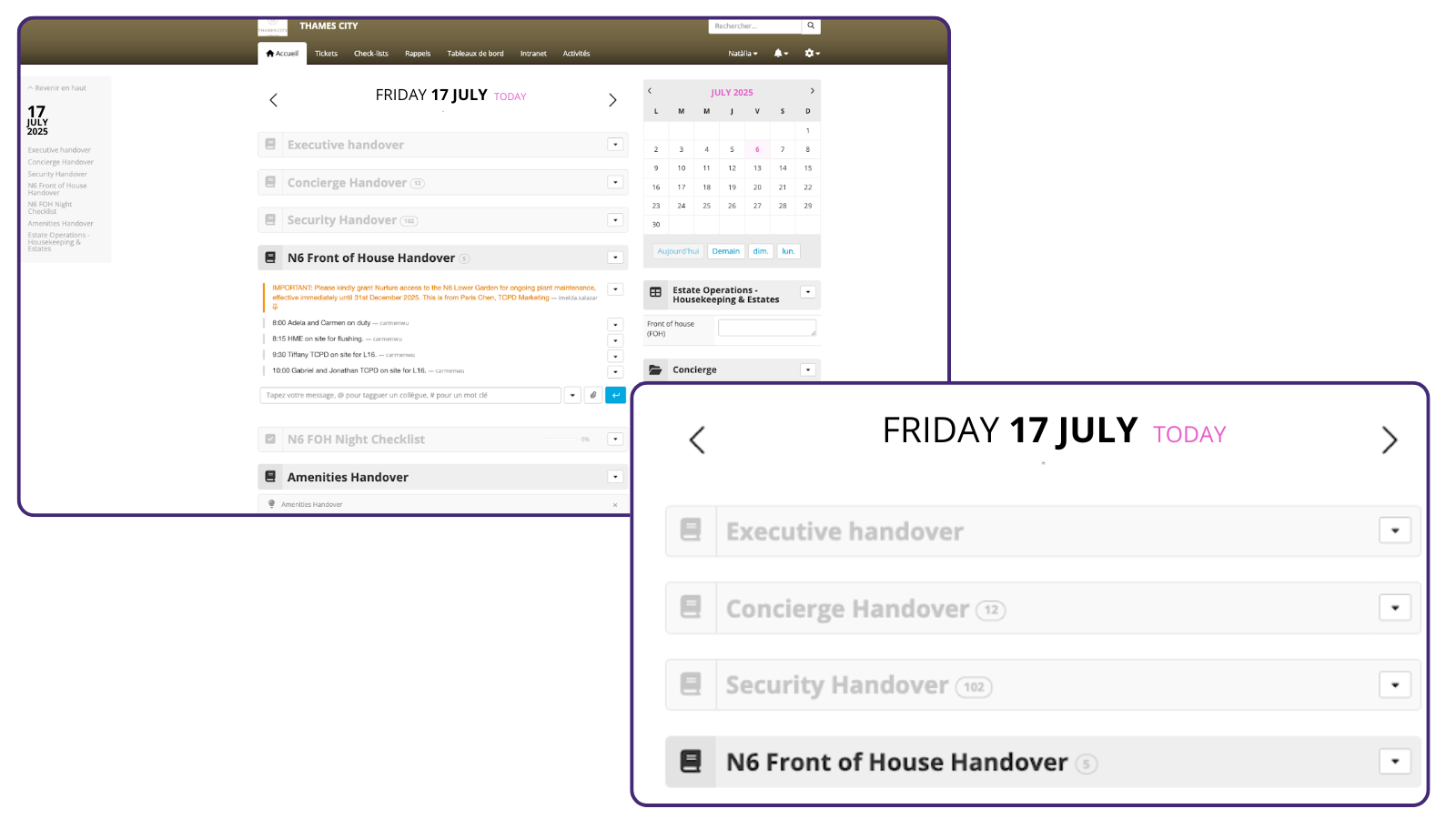
Smart, customisable to-do lists
To help teams accomplish their tasks efficiently, checklist templates are created by the company for each department.
The Result?
- Fewer forgotten tasks or customer requests
- Staff feel supported in their daily tasks
- Less stress and mental load for the teams
- Higher quality of service with smoother task resolution and execution
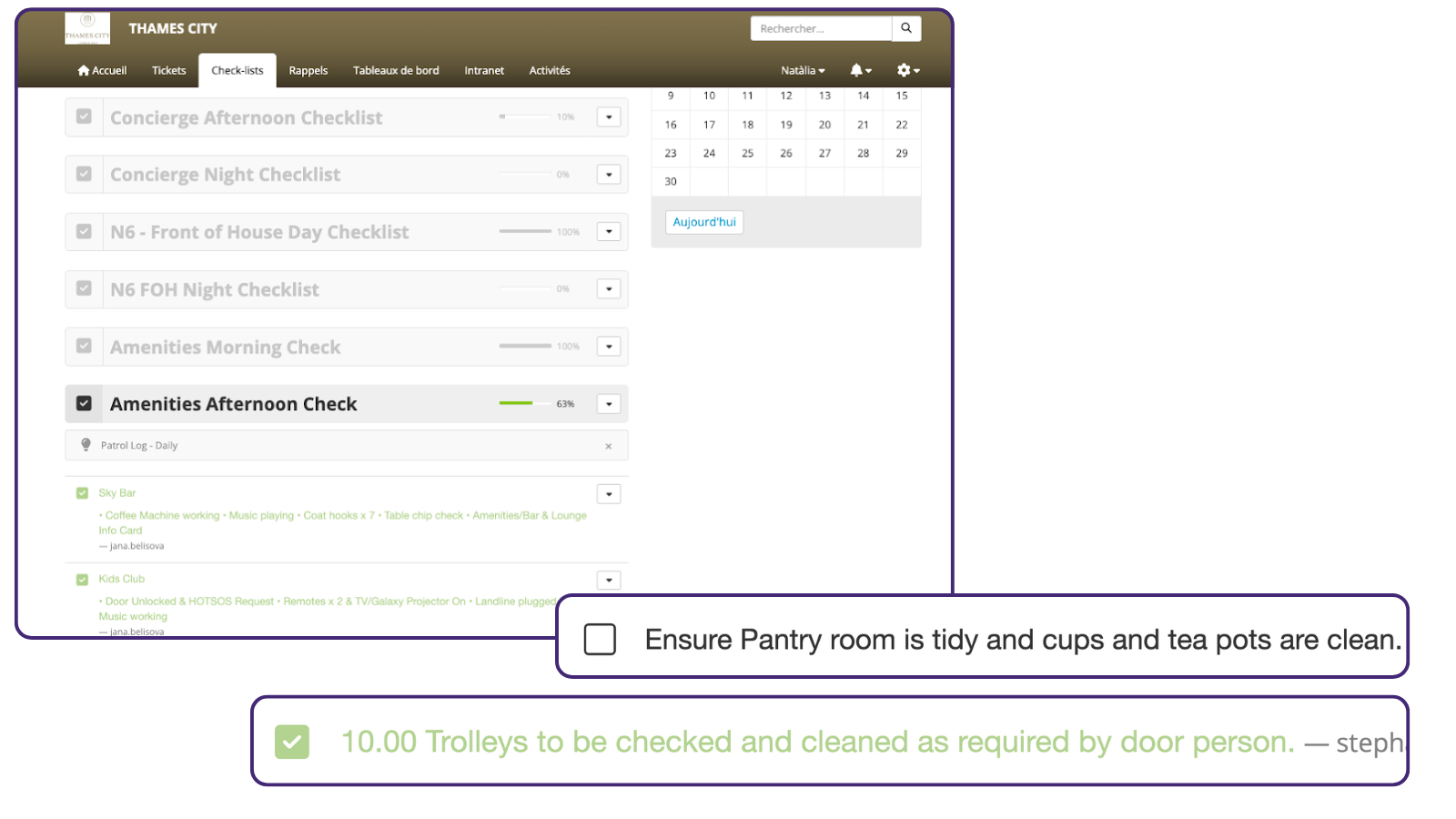
A ticketing tool for lost property
Like any hotel, many items are forgotten by guests or found by staff. Dmbook enables staff to keep track of lost property, and to ensure that they are returned to customers if they wish to reclaim them.
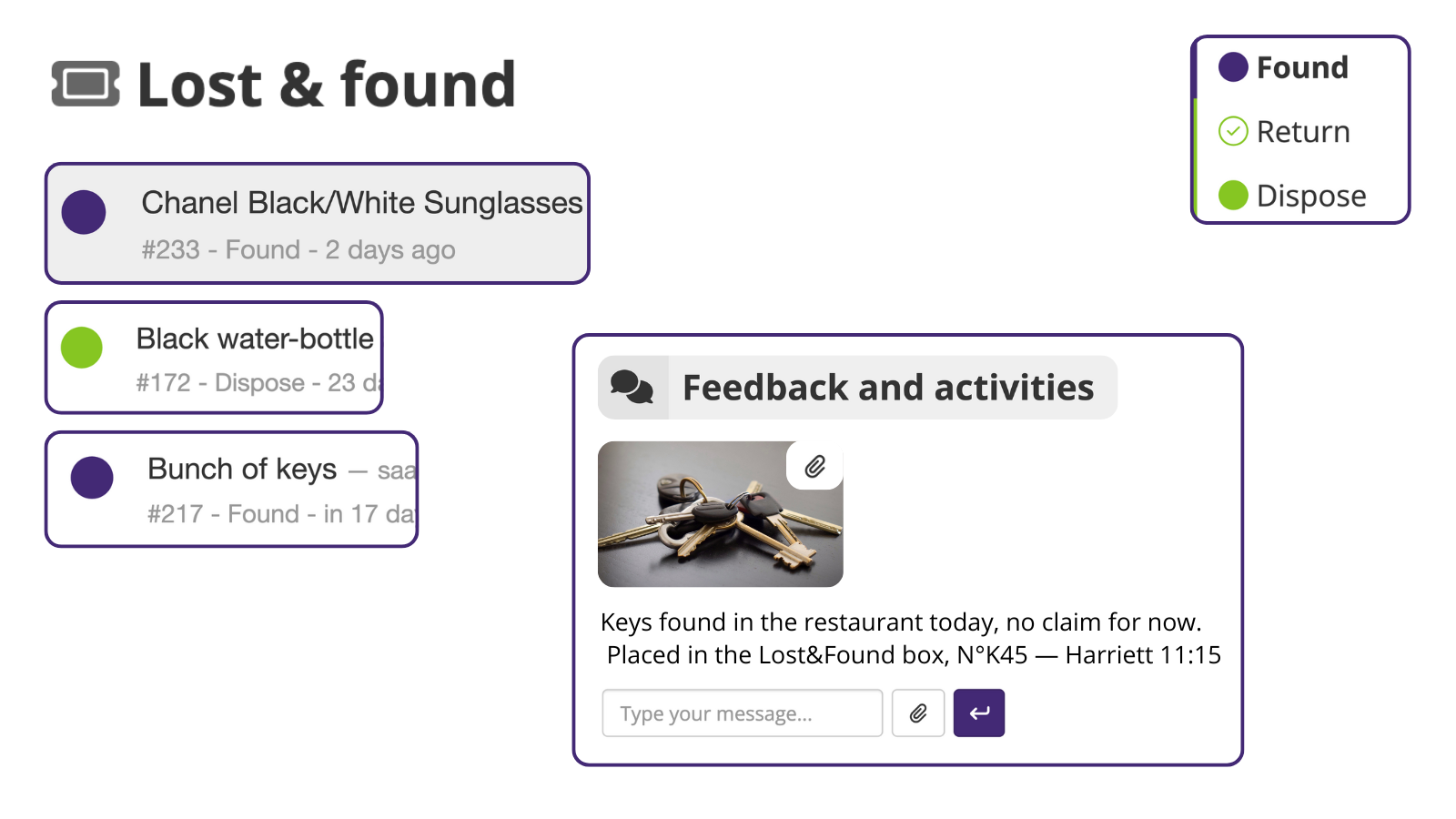
The ticketing system features different statuses to reflect the item’s progress (found, to be sent, to be disposed of, etc.). These statuses can be customised to match the residence’s internal procedures.
A centralised knowledge base
Procedures and documentation
Thames City consolidates its procedures, templates, documents, and links within a clear and structured intranet.
This ensures all team members know exactly where to find the information they need.
Read & sign
Thanks to the e-signature feature, managers can ensure that all staff have read and acknowledged the key documents and procedures.
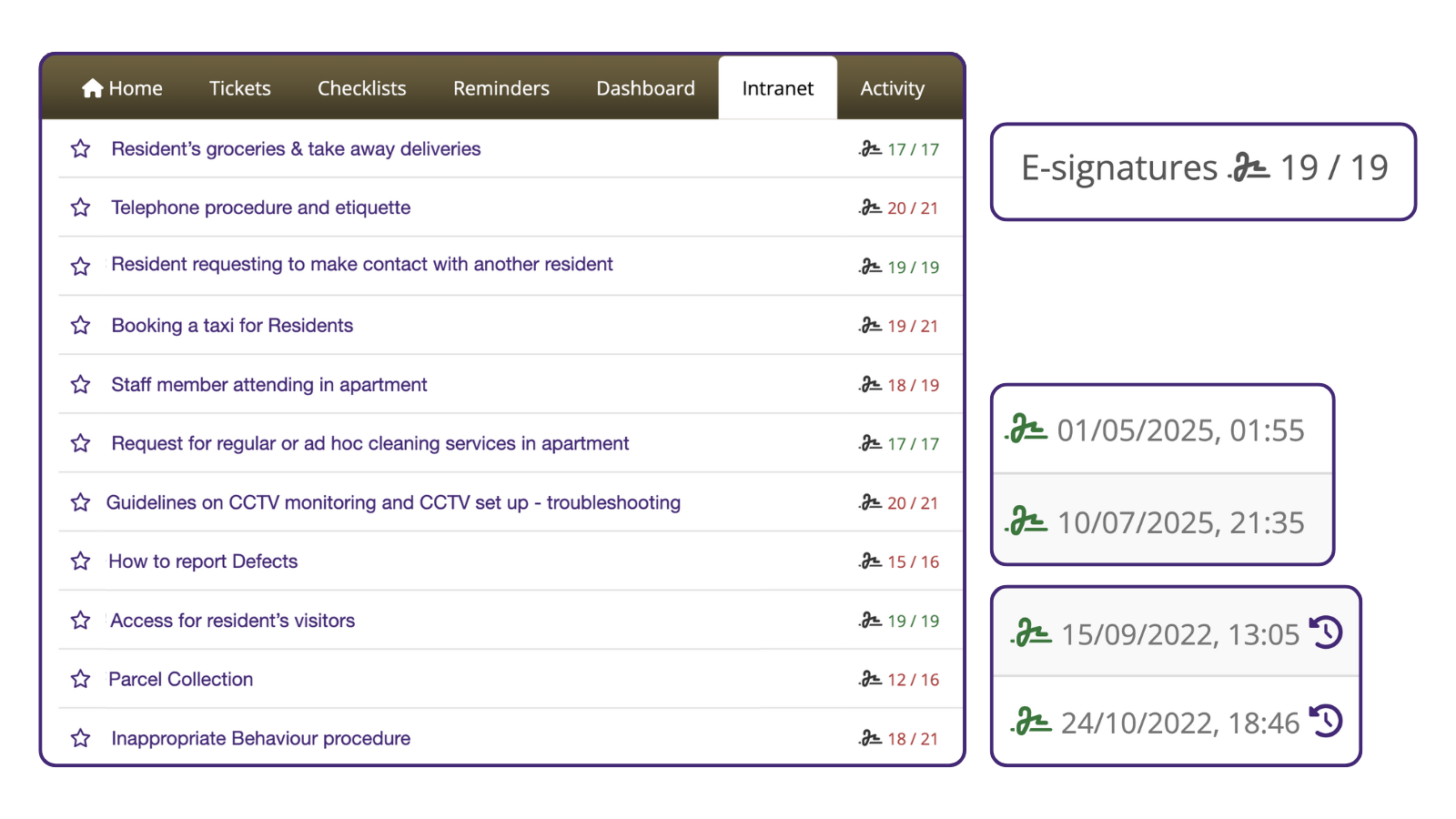
Thames City's Best Practices
Colour coding to categorise instructions
The teams use specific colours depending on the type of instruction issued. This colour-coding system allows for quicker reading and easier access to key information.
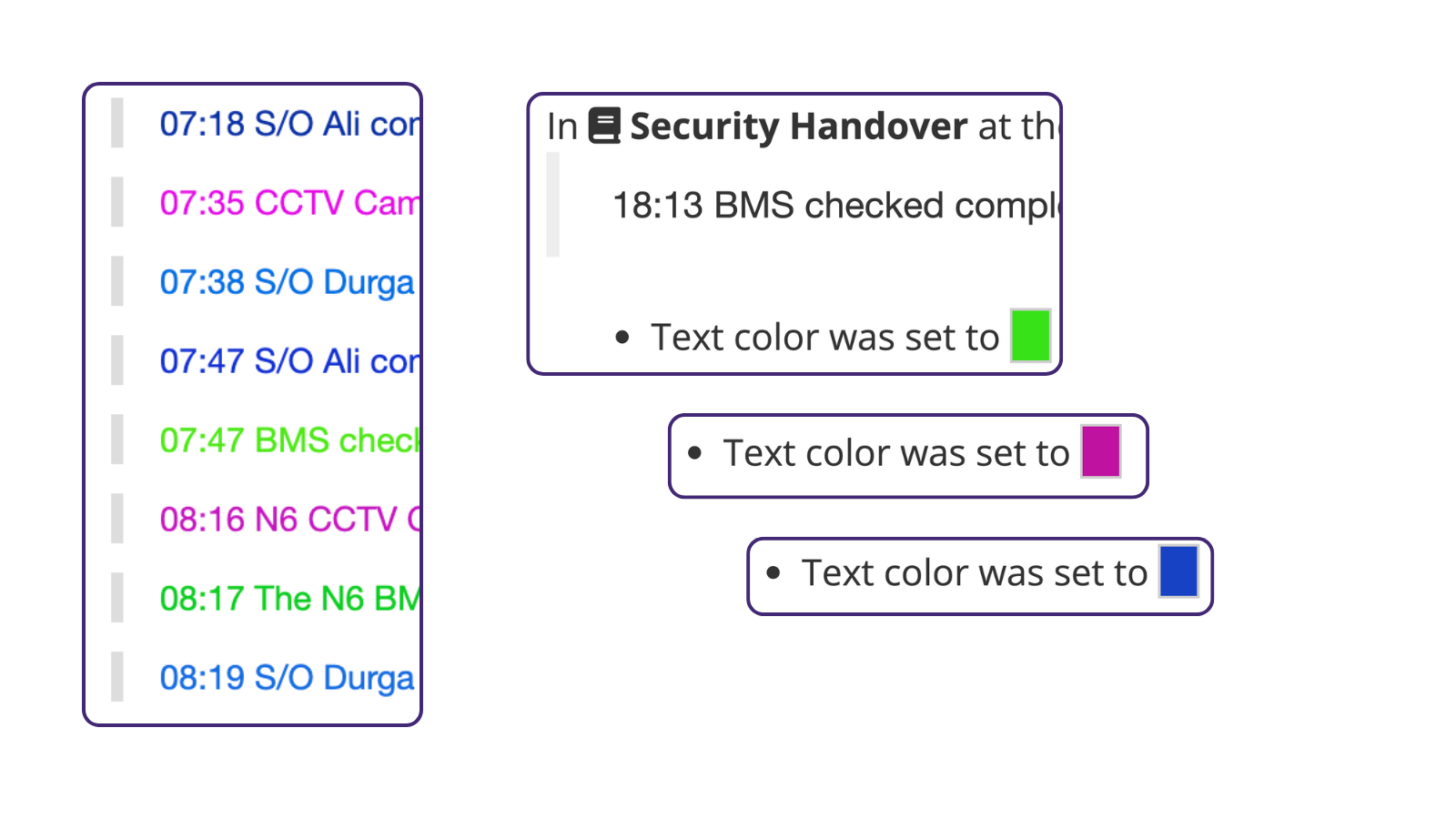
Creating instruction templates
For instructions that require a standardised structure, the Thames City teams have created dedicated instruction templates. This allows team members, for instance when logging a safety-related instruction, to follow the procedure precisely and consistently.
Not only are the checks carried out in a standardised way, but the templates are a real time-saver for the teams, who simply have to add the missing elements: reference number, measurement, time, duration, and so on.
These models can be used to create a real history of what's going on in the hotel, thanks to their uniform structure.
Conclusion
Thames City has chosen a modern, structured tool to optimise its operational management. By equipping itself with a digital logbook, the facility is improving both employee satisfaction and the resident experience, while boosting the efficiency of its field teams.




.png)

.png)